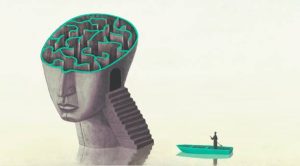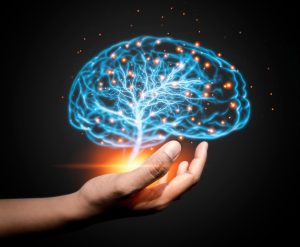For decades, millions of people have lived under the weight of autoimmune diseases—conditions where the body turns against itself. From rheumatoid arthritis and lupus to multiple sclerosis and Hashimoto’s, these disorders steal energy, clarity, and hope. Yet, for many patients, the standard path—filled with pharmaceuticals, quick fixes, and symptom suppression—has only led to frustration and relapse. But a revolution is underway. Dr. John W. Jung, MS, DC, FIAMA, FACMUAP, a pioneer in chiropractic and functional medicine, is rewriting the story of autoimmune disease by asking the one question conventional medicine often ignores: Why is this happening in the first place? Modern medicine has made remarkable strides in emergency care and surgery. But when it comes to chronic illness—especially autoimmune diseases—it often falls short. Patients are told their immune systems are “attacking” their own bodies, and the only solution offered is lifelong medication that suppresses the immune system. Drugs like Humira, Remicade, and Enbrel may ease inflammation temporarily, but as Dr. Jung highlights, their warnings are chilling: “You could die from this stuff, but take it anyway while pictures show people hiking mountains.”
These treatments focus on controlling symptoms rather than identifying why the immune system went rogue. The result? Patients get temporary relief, but the underlying dysfunction—rooted in inflammation, gut imbalance, and cellular stress—remains untouched. Dr. Jung argues that true healing begins when we stop masking symptoms and start addressing the root cause. Functional medicine, as Dr. Jung defines it, isn’t about fighting the body—it’s about listening to it. It’s a holistic, evidence-based system that looks at the body as a network of interconnected systems rather than isolated parts. Instead of asking, “What drug do we use for this disease?” it asks, “What’s causing this imbalance, and how can we restore harmony?” This approach involves testing that traditional clinics often ignore: cytokine profiles, hormone panels, gut microbiome mapping, and inflammation markers like CRP and ANA. By identifying what’s out of balance—whether it’s toxins, infections, nutrient deficiencies, or hormonal shifts—Dr. Jung helps patients rebuild their health from the inside out. As he emphasizes, “Your disease is not from a lack of medicine.” Instead, illness arises when one system breaks and drags others down. Healing, therefore, means strengthening the weakest link—not numbing its symptoms.
At the heart of Dr. Jung’s philosophy lies the gut, which he calls the “master regulator” of the immune system. Over 70% of immune cells live in the gut’s lymphoid tissue, making it the true command center of immunity. When the gut is damaged—by poor diet, chronic stress, infections, or toxins—it becomes “leaky,” allowing undigested food particles and bacteria to enter the bloodstream. The immune system mistakes them for invaders and goes to war, attacking not just these particles, but the body itself. This, Dr. Jung explains, is how autoimmune disease begins. Healing must therefore start with repairing the gut wall, restoring microbiome balance, and reducing inflammation. His protocols often include anti-inflammatory nutrition, probiotics, digestive enzymes, and eliminating foods that trigger immune reactions—like gluten, soy, and processed sugars. He reminds readers that “you can’t treat a body part, organ, or system in isolation. Everything is linked to everything.” Dr. Jung sheds light on a striking truth—autoimmune diseases overwhelmingly affect women. Studies show that women make up nearly 80% of all autoimmune cases, and he offers a clear explanation: hormonal imbalance.
Estrogen, he explains, can overstimulate the immune system, while testosterone often has a calming, protective effect. This means that hormonal shifts during menstruation, pregnancy, or menopause can trigger or worsen autoimmune conditions. Dr. Jung introduces natural ways to restore balance—using adaptogenic herbs like ashwagandha, Tongkat Ali, and Maca root—and emphasizes the importance of checking DHEA and cortisol levels through saliva testing rather than standard blood work. By understanding hormonal interplay, women can reduce inflammation and help their bodies return to homeostasis—the natural state of balance the body constantly seeks. A groundbreaking idea fused throughout Dr. Jung’s work is epigenetics—the science of how environment and lifestyle influence gene expression. “Genes are not destiny,” he explains. What we eat, how we think, the air we breathe, and the stress we hold can all turn certain genes “on” or “off.” This means autoimmune tendencies can be reversed through conscious living. Simple lifestyle shifts—like eating clean, reducing toxins, improving sleep, and practicing gratitude—can calm the very pathways (such as NF-kB and Th17 cytokine cascades) that drive inflammation. Every healthy habit is an instruction you give your cells to heal, Dr. Jung teaches.
The book is filled with success stories that give life to these ideas. Patients with lifelong psoriasis, rheumatoid arthritis, and multiple sclerosis found new hope through functional medicine. By targeting gut health, detoxifying the body, and balancing hormones, they not only reduced symptoms but, in many cases, reversed their diseases without medication. Monica, a woman with Hashimoto’s thyroiditis, saw her antibodies drop from the hundreds to just 2 after changing her diet and supplementing with omega-3s, probiotics, and selenium. Another patient with Crohn’s disease, once dependent on painkillers and steroids, regained full health through gut restoration and nutrient therapy. These stories prove that healing is possible—not by suppressing the immune system, but by teaching it to remember balance. As he says, “People don’t break at their strongest point—they break at their weakest link.” The purpose of functional medicine is to find that link and make it strong again.




